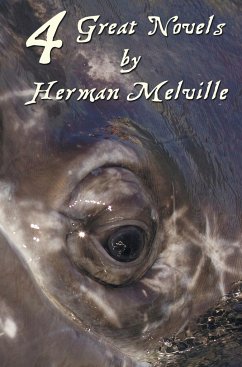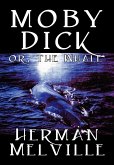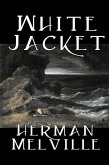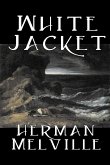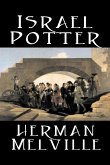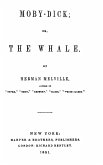Moby Dick is a literary classic. It charts the adventures of a madman as he pits his wits against a creature, huge and dangerous, set against the haunting background of the sea and its legends and myths. This is not a book about whaling, more a book about humanity, belief and perception, written with skill and humor. The book deserves its position as a classic epic tale. Typee was Herman Melville's first book. He mixes his personal experience of living with the primitive South Sea islanders for four months with further research and his powerful imagination to produce this great work. During his lifetime this book won him great fame, shocking his contemporaries with his descriptions of tribal life. The Readers Encyclopedia described it thus: "A vivid picture of a civilized man in contact with the exotic dream-like life of the tropics." Omoo is the Polynesian word for someone who roams from island to island. The book is once again based on his own experiences, this time he is a crew member whaling in the South Seas. The book gives an account of the life of a sailor in the nineteenth century on the high seas - enlisting the locals, handling deserters and mutiny, visiting beautiful Polynesian islands. A fascinating window through time and space. Redburn is a novel taking us back to Herman Melville's youth - in this book he is a boy on a packet ship sailing between New York and Liverpool. It is a coming of age story, moving from innocence to manhood, encountering bullying, slavery and social privilege. It is punctuated with humor and irony, metaphor and transendence. A semi-autobiographical novel, it helps us understand Herman Melville who lost his father when his was only twelve, his father died penniless after the failure of his business.

Herman Melvilles "Typee"
Das Buch trug keine gängige Gattungsbezeichnung, und genau diese Uneindeutigkeit machte 1846 seinen Erfolg aus: In "Typee" erzählte der junge Debütant Herman Melville von seinen Reisen als Seemann und vor allem von einigen Monaten in einem abgeschiedenen Inseltal als entlaufener Matrose, der Unterschlupf bei einem gastfreundlichen Südsee-Stamm fand, der noch nicht intensiv mit Fremden in Kontakt gekommen war. So weit, so nahe an Melvilles eigenen Erlebnissen. Ob es aber sexuell tatsächlich so freizügig bei den Typee (der Name des Stammes) zugegangen ist, wie im Buch vom Ich-Erzähler Tom berichtet, kann mangels anderer Berichte Melvilles nicht mehr rekonstruiert werden. Seine Erzählung traf jedenfalls genau den Nerv im prüden England des frühen Viktorianischen Zeitalters und dem noch prüderen Amerika. Und der Untertitel tat das Seine dazu: "A Peep at Polynesian Life".
Warum Alexander Pechmann in seiner Neuübersetzung darauf verzichtet hat, den "Schlüssellochblick", was wohl die gängige deutsche Entsprechung für peep gewesen wäre, entfallen zu lassen und das Buch nun ganz ohne Gattung auf die Leser loszulassen, erläutert er leider nicht in seinem umfangreichen Nachwort. Dafür liest sich diese insgesamt vierte deutsche Übertragung von Melvilles zu Lebzeiten mit Abstand erfolgreichstem Buch sehr gut, weil Pechmann den Erzählton des neunzehnten Jahrhunderts auch ohne Archaismen trifft - wer "Vorkehrungen" statt "Vorbereitungen" sagt, ist diesbezüglich auf dem richtigen Weg. Hoffentlich wird er auch noch "Omoo" übertragen, die Fortsetzung zu "Typee" mit weiteren Abenteuern von Peeping Tom.
apl.
Herman Melville: "Typee".
Hrsg. und aus dem Amerikanischen von Alexander Pechmann. Mare Verlag, Hamburg 2019. 447 S., geb. im Schuber, 38,- [Euro].
Alle Rechte vorbehalten. © F.A.Z. GmbH, Frankfurt am Main

